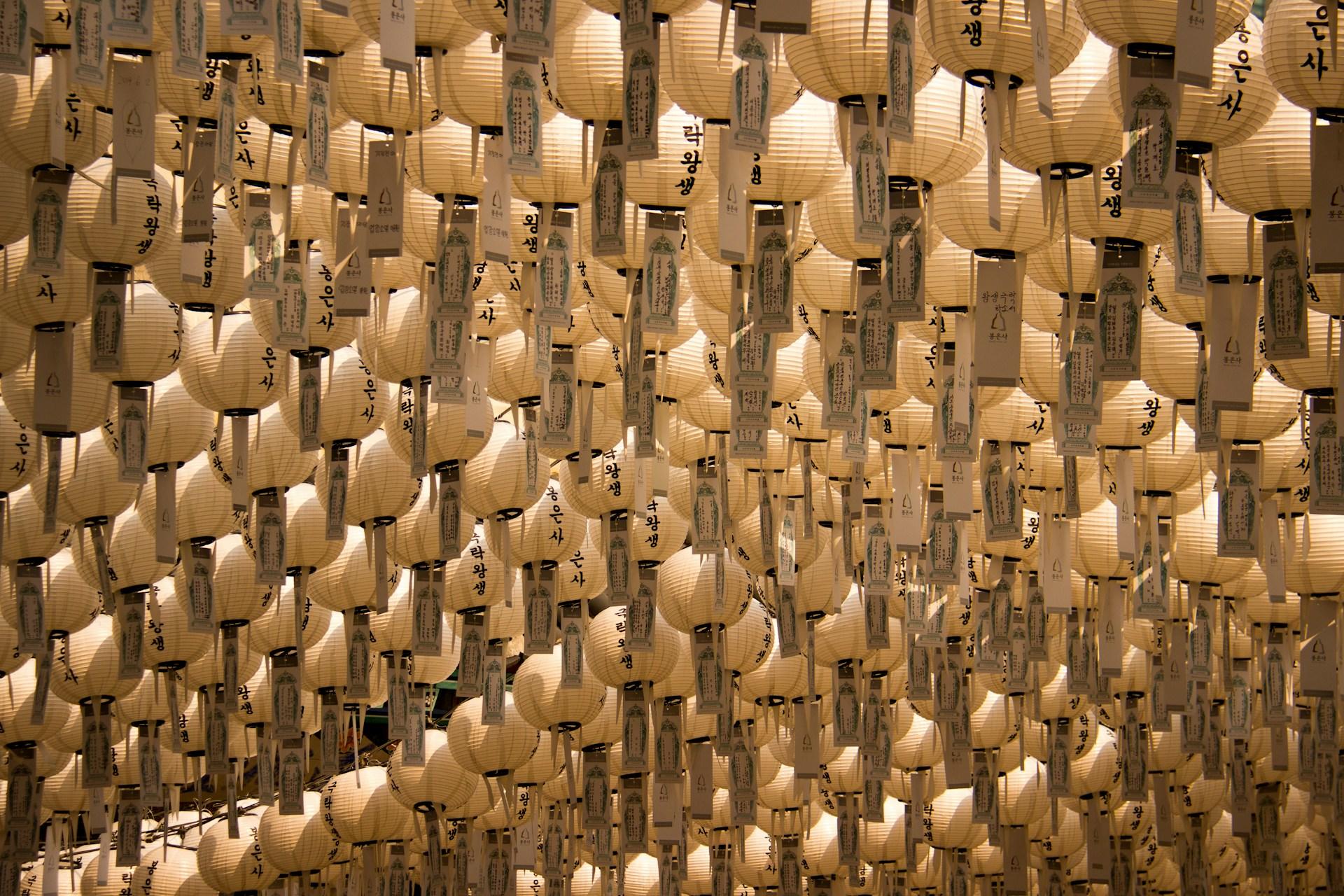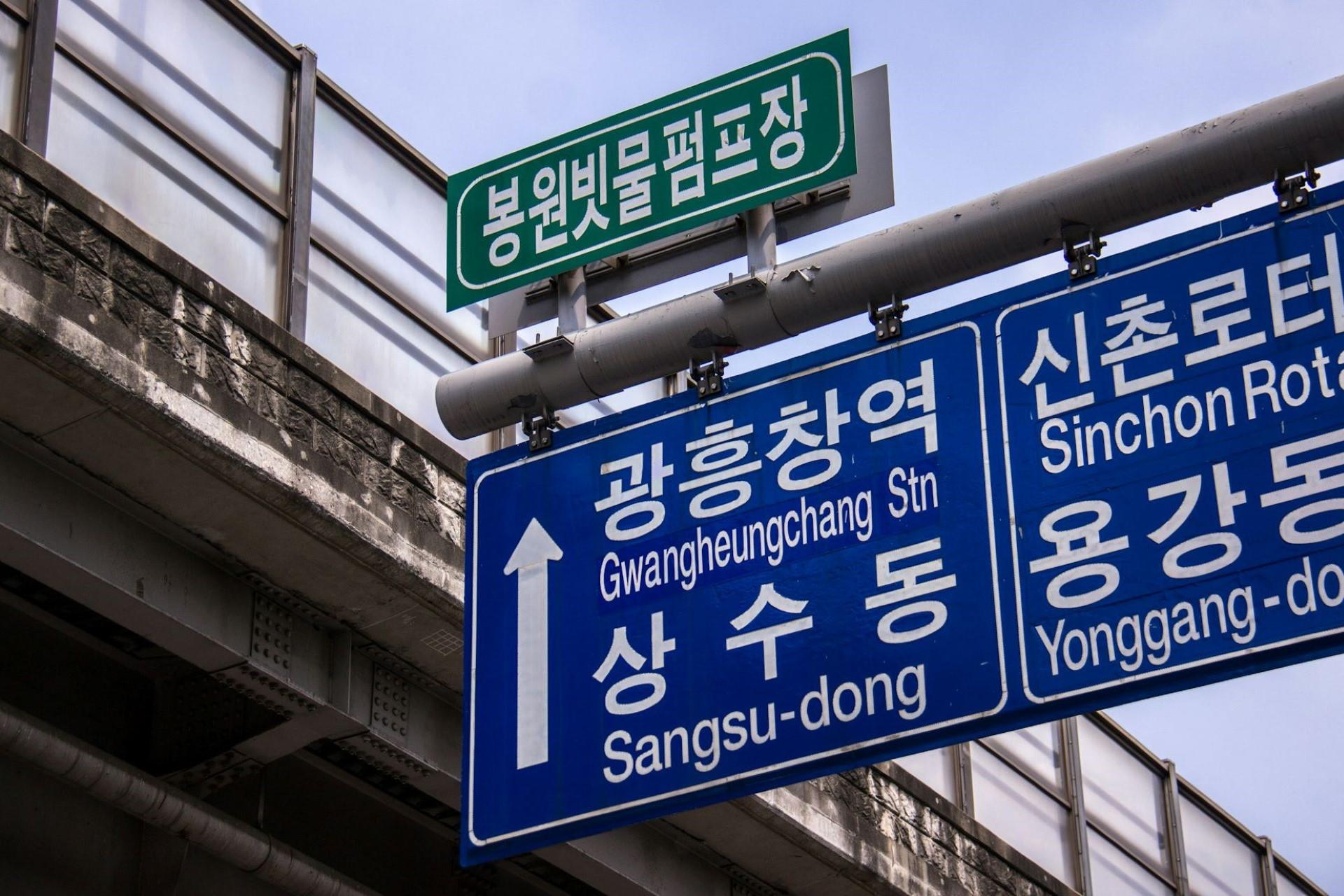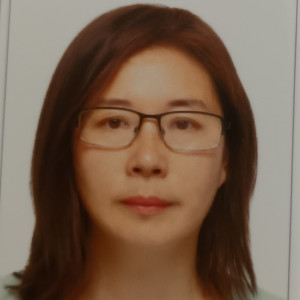Korean is spoken by over 80 million people around the world with most of the native speakers living on the Korean peninsula in South Korea and North Korea.
It's generally considered to be a somewhat difficult language to learn, but it's not an impossible language to learn.
While it might take around two years of regular study to start speaking Korean fluently, many expressions, words, and phrases will be useful to you on your language-learning journey.
We obviously can't tell what you need Korean phrases for and what you should be learning, but a lot of these sentences, words, and expressions are a good place for any absolute beginner.
You won't need to know every single one of them, but if you want to, this could be a good place to start learning Korean. We've included each of them with the Korean alphabet as well as a rough pronunciation guide next to them, though we'd recommend also learning the alphabet and Korean pronunciation while you study these words.

Greetings
Before you can speak to anybody, you'll need to start a conversation. Some of the first things you might want to learn in Korean are how to greet people and how to politely end conversations.

In Korean, much like English, you can greet people in different ways depending on who you're speaking to and the time of day. For all of the vocabulary in this article, we've included how they're written using the Korean writing system and their pronunciation.
- Hello. (formal) - 안녕하십니까. (annyeonghasimnikka)
- Hello. - 안녕하세요. (annyeonghaseyo)
- Hello. (informal) - 안녕. (annyeong)
- Hello. (on the phone) - 여보세요. (yeoboseyo)
- Good morning. - 좋은 아침입니다. (jo-eun achimimnida)
- Good evening. - 좋은 저녁입니다. (jo-eun jeonyeogimnida)
- Good night. - 좋은 밤입니다. (jo-eun bamimnida)
- Good night (to sleep) - 안녕히 주무십시오. (annyeonghi jumusipsio)
Common Expressions
Many common expressions are particularly useful in basic conversations whether you're a tourist asking for directions, ordering in a restaurant, speaking to somebody in a hotel, or just talking to a friend or business colleague. Korean also uses many different honorifics, which can vary depending on who you're speaking to.
Remember that with expressions like “excuse me”, the translation is more for getting someone's attention than apologising for something. For that, you can use the “I'm sorry” expression.
- Please. - 부탁합니다. (butakamnida)
- Thank you. - 감사합니다. (gamsahamnida)
- You're welcome. - 천만입니다. (cheonmanimnida)
- Excuse me. (getting attention) - 실례합니다. (sill(y)e hamnida)
- I'm sorry. - 죄송합니다. (joesonghamnida)
- Yes. - 예/네. (ye/ne)
- No. - 아니요. (aniyo)
Introductions
If you'll be having a conversation outside of a commercial setting like a bar, restaurant, or tourist attraction, you'll need to introduce yourself or maybe ask the other person about themselves.

Here are a few expressions that will be useful at the start of conversations for telling people who you are.
Remember that when you say these expressions, you'll need to fill in the blanks with the relevant information.
- My name is ______ . - 제 이름은 ______입니다. (je ireumeun ____ imnida)
- What is your name? - 성함이 어떻게 되세요? (seonghami eotteoke doeseyo?)
- Nice to meet you. - 만나서 반갑습니다. (mannaseo ban-gapseumnida)
The good thing is now with the expressions you've read so far, you can have your first real exchange in Korean. While the conversation is hardly going to be the most gripping exchange in your life, you're getting there.
Numbers
Whether it's paying for something, ordering things, or calling somebody, numbers are pretty important in almost every language.
In Korean, there are two types of numbers, Sino-Korean numbers and Native Korean numbers. You can use these two sets of numbers in different situations.
For example, Sino-Korean numbers, which originally came from Chinese, are used when saying the date, counting days, years, months, money, or giving a telephone number.
The Native Korean numbers are used for counting certain kinds of nouns. To use these numbers, however, you also need to use words known as “counters” with each of the numbers.
Since we could go on forever with numbers, we'll just look at one to ten to get you started. You can always look up the numbers after this once you've memorised these ones first and after one hundred, you only need to use Sino-Korean numbers.
Sino-Korean Numbers
- 0 - 공 (gong) / 영 (yeong)
- 1 - 일 (il)
- 2 - 이 (i)
- 3 - 삼 (sam)
- 4 - 사 (sa)
- 5 - 오 (o)
- 6 - 육 (yuk)
- 7 - 칠 (chil)
- 8 - 팔 (pal)
- 9 - 구 (gu)
- 10 - 십 (sip)
Native-Korean Numbers
- 1 - 하나 (hana)
- 2 - 둘 (dul)
- 3 - 셋 (set)
- 4 - 넷 (net)
- 5 - 다섯 (daseot)
- 6 - 여섯 (yeoseot)
- 7 - 일곱 (ilgop)
- 8 - 여덟 (yeodeol)
- 9 - 아홉 (ahop)
- 10 - 열 (yeol)
Counters
Remember that these counters are only used with Native Korean numbers and will go on the end of the number.
There are a few special rules and exceptions and while an absolute beginner won't be expected to remember them all or even get them right, it's a good idea to familiarise yourself with them so you recognise them if you hear someone else using them.
- objects (apples, sweets) - 개 -gae
- people - 명 -myeong, 분 -bun (polite)
- flat paper-like objects (papers, tickets, pages) - 장 -jang
- bottles (or other glass or ceramic containers for liquid with a narrow mouth) - 병 -byeong
- cups, glasses - 잔 -jan
- animals - 마리 -mari
- times - 번 -beon
- machines (cars, computers) - 대 -dae
- long objects (pens, rifles) - 자루 -jaru
- books - 권 -gwon
- small boxes (cigarettes, etc.) - 갑 -gap
- large boxes - 상자 -sangja
- trees - 그루 -geuru
- letters, telegrams, phone calls, e-mails - 통 -tong
- boats - 척 -cheok
- bunches of things such as flowers - 송이 -song-i


Basic Questions
For most conversations, you'll need to ask some questions. Here are some of the most common questions that you'll likely ask the Korean speakers you'll interact with as a beginner.
- How are you? - 어떻게 지내십니까? (eotteoke jinaesimnikka?)
- What is this/that called? - 이것은/저것은 무엇이라고 부릅니까? (igeoseun/jeogeoseun mueosirago bureumnikka?)
- How much is this? - 이것은 얼마입니까? (igeoseun eolmaimnikka?)
- How do you say _____ in Korean? - _____은 한국말로 어떻게 말합니까? (____eun Han-gungmallo eotteoke malhamnikka?)
Time and Dates
There are plenty of Korean phrases and words you should learn to express times and dates and it's too complicated to go into telling the time and going through all the months of the year in this introductory article, but here are some of the basic vocabulary you should know so that you can express basic concepts of time.
- today - 오늘 (oneul)
- yesterday - 어제 (eoje)
- tomorrow - 내일 (naeil)
- the day before yesterday - 그저께 (geujeokke)
- the day after tomorrow - 모레 (more)
- this week - 이번 주 (ibeon ju)
- last week - 지난 주 (jinan ju)
- next week - 다음 주 (da-eum ju)
Directions
As we're assuming that you're an absolute beginner, it makes sense that you'll likely be using these basic Korean phrases and words to get around while visiting South Korea.
As in any language, giving and understanding directions is important so here are some of the key Korean vocabulary that you'll need for the simplest directions.
- left - 왼쪽 (oenjjok)
- right - 오른쪽 (oreunjjok)
- straight ahead - 곧장 가십시오. (gotjang gasipsio)
- where? - 어디입니까? (eodiimnikka?)
Emergency Expressions
Hopefully, you'll never have to use these Korean expressions, but it's a very good idea to learn them.
- Help! - 도와주십시오! (dowajusipsio!), 도와주세요! (dowajuseyo!)
- I'll call the police. - 경찰을 부르겠습니다! (gyeongchareul bureugetseumnida!)
- Police! - 경찰! (gyeongchal!)
- I need a doctor. - 의사가 필요합니다. (uisaga piryohamnida)
- Is there someone here who speaks English? -
- 여기에 영어를 하시는 분 계십니까? (yeogie yeong-eoreul hasineun bun gyesimnikka?)
Learning More Korean Phrases
These expressions should be a good place to start and if you learn all of these words, you'll know how to say quite a few things in the Korean language.
Don't forget that pronunciation is important and while these examples provide a guide, it can help a lot to hear an example of all of the words and sentences we've included here.
As with anywhere in the world, you'll find that most Koreans are happy to help with pronunciation and comprehension if you've shown that you're willing to try speaking their language.

A private tutor can also help you with learning Korean words and phrases and will likely be able to give you a better and more specific set of learning objectives than the common phrases we've included.
Don't forget that basic phrases and sentences will only get you so far and rather than just knowing how to say set phrases, you need to learn how Korean grammar works, lots of different words, and how to formulate your sentences for whatever situation you find yourself in.
As you improve your level in Korean, you'll know what to say in a range of situations, but for the time being, just work hard and remember that learning any language is a marathon, not a sprint and you can always choose different resources and mix things up to keep the learning process fresh.
Summarise with AI:















